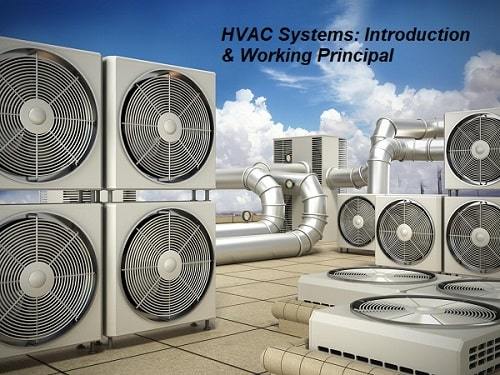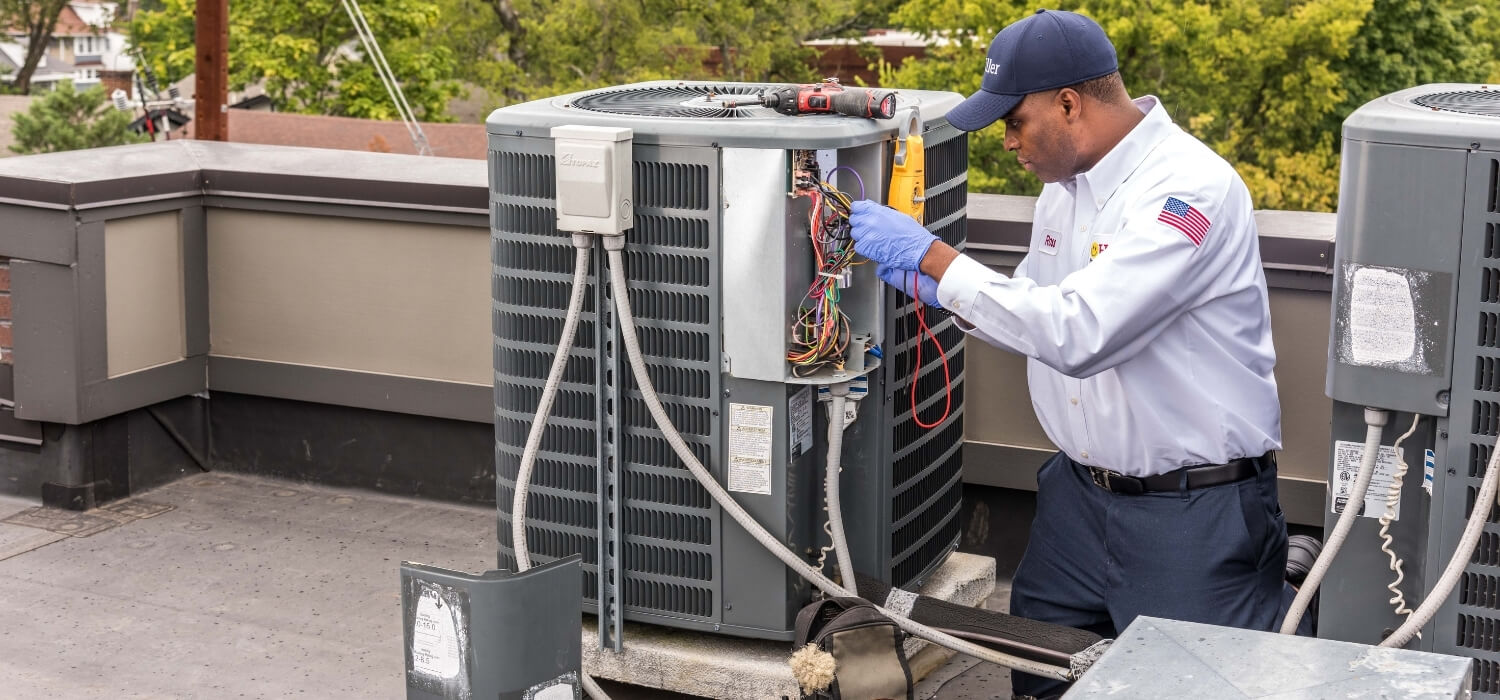An Extensive Take A Look At HVAC Solutions and Their Influence on Energy Efficiency and Price Financial Savings
The duty of cooling and heating services in enhancing power efficiency and accomplishing expense savings is more important than ever before, as home owners and organizations seek sustainable remedies in a progressively eco-conscious globe. With technological developments like clever thermostats and high-efficiency components, the possibility for maximizing system performance is large. Yet, truth impact of these developments depends mostly on routine maintenance and aggressive problem administration. As we check out the elaborate relationship between HVAC systems and functional expenses, including the change towards eco-friendly alternatives, the question develops: how can these methods be properly implemented to take full advantage of both financial and environmental advantages?

Importance of HVAC Systems
cooling and heating systems are a crucial part of contemporary buildings, playing a critical duty in keeping comfortable and healthy and balanced indoor atmospheres. These systems, incorporating air, air flow, and home heating conditioning, are vital for managing temperature level, humidity, and air top quality, thus making certain the well-being of owners. Reliable HVAC systems add significantly to creating an optimum interior environment, which is essential for both business and property spaces.
In business buildings, heating and cooling systems are essential to giving a secure and productive atmosphere. By controlling interior climate conditions, these systems help prevent the growth of mold and the spread of airborne pollutants, therefore securing the wellness of employees and consumers. In addition, in household settings, HVAC systems improve living conditions by using regular thermal comfort and enhancing interior air high quality, which is important for general health.
Furthermore, the style and upkeep of a/c systems have a direct influence on power consumption and operational costs. Appropriately developed and kept systems can substantially decrease energy usage, bring about decreased energy bills and a smaller sized carbon impact. The performance of these systems therefore plays a vital function in advertising sustainability and energy conservation within buildings, highlighting their relevance in the modern architectural landscape.
Advancements in Cooling And Heating Modern Technology
Innovation in HVAC innovation is transforming the way structures take care of interior environments, ushering in a new period of efficiency and control. Current developments have actually focused on maximizing power usage while enhancing customer convenience. One significant growth is the assimilation of wise thermostats, which utilize expert system to learn occupancy patterns and readjust temperatures appropriately, decreasing unneeded power use.
Variable Refrigerant Circulation (VRF) systems represent another considerable leap ahead. These systems permit accurate temperature control in various zones of a structure, improving comfort and lowering power waste. VRF innovation is specifically useful for big business rooms, providing flexibility and scalability.
Additionally, the development of Web of Points (IoT) devices has actually changed cooling and heating systems into interconnected networks with the ability of real-time information collection and evaluation. This connectivity enables anticipating upkeep, ensuring systems operate at peak efficiency and minimizing unexpected downtime.
In addition, developments in products and style, such as the usage This Site of high-efficiency coils and compressors, have actually boosted total system performance - Heating Contractor. The adoption visit homepage of eco-friendly cooling agents likewise highlights the industry's dedication to sustainability
These technical technologies are essential in reducing functional prices and ecological effect, setting brand-new criteria for building climate management.
Heating And Cooling Maintenance and Effectiveness
Making sure ideal performance of HVAC systems extends past technological improvements; it also hinges on efficient upkeep practices. Routine maintenance is important for maintaining effectiveness, decreasing energy usage, and prolonging the lifetime of cooling and heating systems. The main objective is to make sure that all parts function at their peak capacity, thus minimizing energy wastefulness and maintaining regular indoor comfort degrees.
Routine upkeep jobs, such as cleaning or changing air filters, checking cooling agent levels, and examining ductwork for leakages, are important for stopping unneeded strain on the system. Filthy or stopped up filters can block air movement, causing the system to work harder and consume more energy. Also, poor cooling agent degrees can lower cooling down effectiveness, leading to greater operational prices.
In addition, regular examinations by certified specialists can determine prospective problems before they rise into costly repair work or system failures. These examinations usually include examining electric connections, calibrating thermostats, and making certain the general stability of the a/c system. By attending to small issues early, companies and homeowners can stay clear of unexpected failures and improve power effectiveness.
Economical A/c Solutions
For those wanting to obtain the most out of their air, ventilation, and home heating conditioning systems without breaking the financial institution, discovering cost-effective HVAC solutions can make a significant difference. One immediate measure is to purchase programmable thermostats, which enable individuals to set particular temperatures for various times of the day, maximizing power use and decreasing unneeded consumption. By automating temperature level changes, home owners can accomplish significant financial savings on energy costs.
Routine upkeep is hvac carrier an additional vital component of cost-efficient heating and cooling administration. Guaranteeing that filters are cleaned up or replaced regularly, ductwork is sealed, and units are serviced by specialists can avoid costly repair services and boost system durability. Preventative maintenance not just keeps system performance yet likewise helps in preventing unexpected malfunctions that can result in expensive emergency situation fixings.
Furthermore, retrofitting existing systems with energy-efficient parts, such as variable rate electric motors or high-efficiency compressors, can be a prudent financial investment. These upgrades enhance operational efficiency, reduce energy usage, and can often be applied at a portion of the price of a complete system replacement.
Ecological Influence Decrease
Lowering the environmental impact of Heating and cooling systems is crucial in today's search of sustainable living. A/c systems are substantial factors to power usage, accounting for nearly 40% of energy usage in business structures.
Technological developments in a/c design and operation, including the integration of clever thermostats and energy-efficient heat pumps, are critical in reducing carbon impacts. These technologies permit for maximized power usage, decreasing wastefulness and boosting total system efficiency. Additionally, adopting regular upkeep techniques ensures heating and cooling systems operate at peak effectiveness, more curtailing unneeded power usage.
In addition, making use of eco pleasant cooling agents is essential, as traditional refrigerants, like CFCs and HCFCs, have been eliminated as a result of their ozone-depleting homes. Modern alternatives, such as hydrofluoroolefins (HFOs), offer minimized environmental threats, straightening with international environmental procedures. By embracing these lasting techniques, cooling and heating solutions can play a transformative role in decreasing environmental impacts, advertising energy efficiency, and fostering an extra sustainable future.
Verdict

In addition, the style and upkeep of HVAC systems have a direct influence on energy usage and functional prices. Regular maintenance is vital for maintaining performance, minimizing power intake, and extending the life span of A/c systems. A/c systems are substantial factors to power consumption, accounting for nearly 40% of energy use in commercial structures. Furthermore, taking on regular upkeep practices guarantees Heating and cooling systems operate at peak effectiveness, additional cutting unneeded power intake.
The change to eco pleasant HVAC systems further lowers operational prices and advertises sustainability. (Heating Contractor)